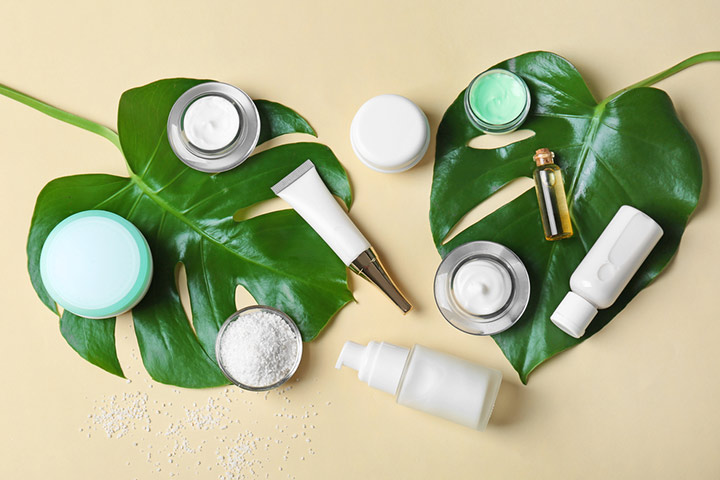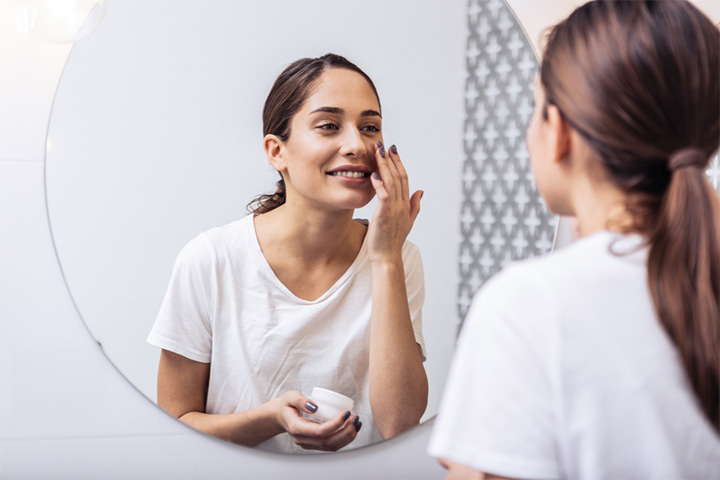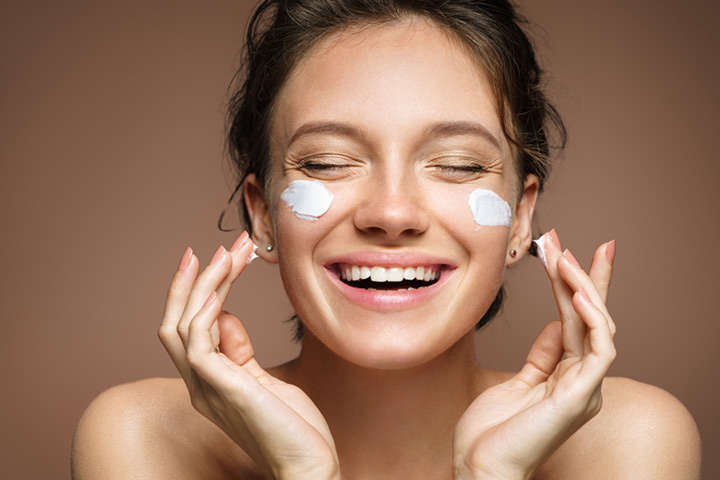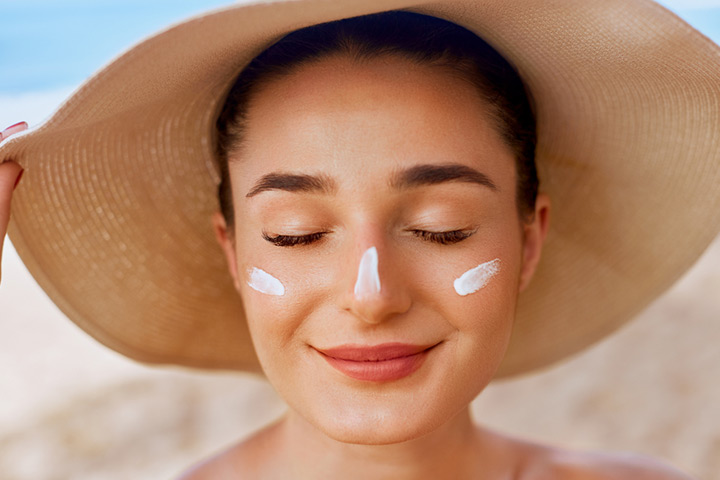
Image: Shutterstock
Congratulations on your pregnancy! Now that you are with a bump, you may have to temporarily shelve your most trusted and favorite skincare products and brands. It’s hard enough that you have to give up on wine and coffee, but letting go of your favorite skincare products may be harder for most mamas. After all, it must have taken you months or even years to find the right products that suit and benefit your skin, especially if you suffer from certain skin conditions such as acne or rosacea. But here’s the good news: you don’t have to completely nix your skincare routine. Granted; it’s best to stay away from certain ingredients as these ingredients can be absorbed into your body and may potentially affect your baby’s health. But most over the counter products might be safe for your little one. You can still maintain a healthy glow and protect your baby by looking out for a few skincare ingredients that you need to avoid while pregnant.
Skincare Ingredients To Avoid During Pregnancy
Before we tell you what ingredients to avoid, you should note that clinical trials and evidence-based data on skincare products and ingredients and their effect on pregnant and fetal health are limited. And when it comes to cosmetic products, the law does not call for FDA approval for a product to be sold on the market (1). So, if you’re pregnant and are worried about using a certain product or ingredient, it is best to seek advice from your doctor before you start using it. Below, we list down 5 ingredients found in skincare products that may not be safe during pregnancy.
Retinoids
Vitamin A is an important micronutrient that helps in maintaining the optimal health of the skin. It also helps improve the immune system and eye health among other functions. Vitamin A when consumed or absorbed through the body is converted into retinol to be utilized by our body (2).
Retinoids (a type of retinol) have proved to be a holy grail ingredient for those who wish to reduce signs of aging and improve their acne. They do this by increasing collagen production and boosting skin regeneration (3).
Over the counter products are usually formulated with lower levels of retinoids, but certain prescription medications such as Accutane and Retin-A contain higher levels of retinoid and are associated with birth defects. Hence, pregnant women are advised against all retinoids (3).
Salicylic Acid
Another common ingredient that is used to treat acne is salicylic acid. However, based on a study, higher doses of salicylic acid has proved to be unsafe during pregnancy (4). So, it’s best to avoid using peels and medications since most of them feature high doses of salicylic acid. According to the American College of Obstetricians and Gynecologists (ACOG), salicylic acid in low doses is considered to be perfectly safe during pregnancy (5).
Hydroquinone
Hydroquinone is a skincare ingredient that is most commonly found in skin lightening products. It is also useful in treating skin conditions such as melasma and chloasma. Though there is no proven data that shows links its usage with adverse effects during pregnancy, because of the higher absorption rate of hydroquinone when compared to other ingredients, it is best to limit or avoid this ingredient completely (6).
Formaldehyde
You will rarely find this skincare ingredient in cosmetic products anymore since it has been identified as a carcinogen. Formaldehyde has been most commonly used as a disinfectant and preservative in cosmetic products. The Centers for Disease Control and Prevention recommends against the usage of this ingredient as it has known to increase the risk of infertility and miscarriage (7).
Other formaldehyde-releasing chemicals found in skincare products with potentially harmful effects include (8):
- Hydroxymethylglycinate
- Bronopol
- Imidazolidinyl urea
- DMDM hydantoin
- Diazolidinyl urea
- Quaternium-15
- 5-bromo-5-nitro-1,3-dioxane
Phthalates
If your beauty or personal products contain phthalates, it’s best to ditch those until after your pregnancy. In some animal studies, phthalates have been linked to hormone dysfunction and serious reproductive issues. Though there isn’t enough data of its effect on humans, they are now being extensively studied for the potential dangerous effects it may have on reproductive health (9). Phthalates are most commonly found in the form of diethyl phthalate (DEP) in beauty products.
Chemical Sunscreens
Oxybenzone is one of the active ingredients found in chemical sunscreens. Unlike physical sunscreen, chemical sunscreen gets absorbed into the skin while also absorbing the UV rays before it gets released from the body in the form of heat. Oxybenzone and its derivatives have proved to be effective when it comes to skin protection and filtering UV rays, but it may lead to adverse health and environmental effects (10).
Studies have found exposure to the chemical during pregnancy has resulted in changes in lactation as well as mammary glands (11). It has also been linked to permanent fetal damages and the development of neurological conditions in animals (12).
We hope our list of ingredients will be useful in making better choices to help safeguard your baby’s health while pregnant. Talk to your dermatologist or OB-GYN if you’re concerned about using a particular product or medication.
















